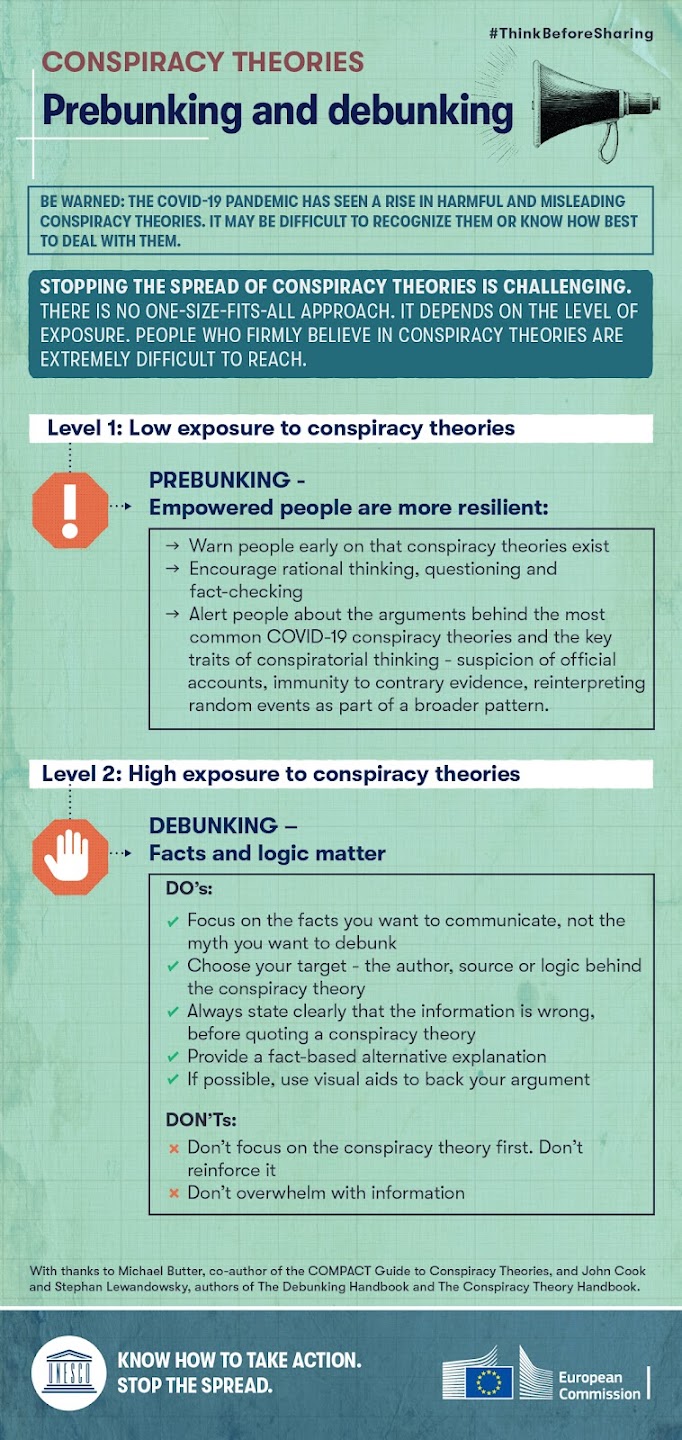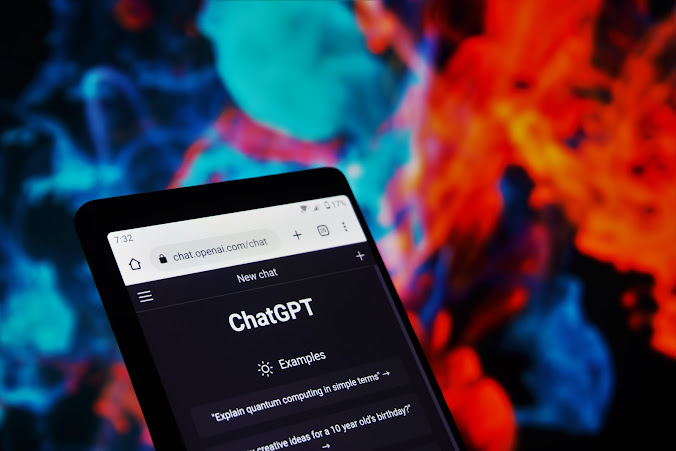The United Nation's Global Fight Against Conspiracy Theories
The United Nations Educational, Scientific and Cultural Organization released an official advocacy report, along with social media friendly infographics, for educators to combat the prevalence of conspiracy theories online.
“Conspiracy theories often start as a suspicion. They ask who is benefiting from the event or situation and thus identify the conspirators. Any “evidence” is then forced to fit the theory. Once they have taken root, conspiracy theories can grow quickly. They are hard to refute because any person who tries is seen as being part of the conspiracy,” a Think Before Sharing infographic says.
“Education can play a central role in building the resilience, knowledge and analytical skills needed to “pre-bunk” and debunk conspiracy theory narratives,” a UNESCO news release said. The guide “seeks to provide educators with key definitions and essential knowledge to grasp the complexity of the phenomenon and alert learners about the key characteristics and harmful effects of conspiracy theories for a first, immediate response.”
The advocacy report asks readers to check for credentialed sources and to be wary of authors that are “self proclaimed experts” that present their information “as the only valid truth.”
The report tells educators to “always state clearly that the information is wrong before quoting a conspiracy theory.”
“Real conspiracies are generally less elaborate and much smaller in scale than conspiracy theories. They are more often centered on a single, self-contained event or individual occurrence with a clear target like an assassination, scandal or Coup d’État. Such events rarely work out to plan and often have unintended consequences. They are often unearthed by whistle-blowers, government investigations, internal industry documents and the media, using verifiable facts and evidence. In contrast to real conspiracies, conspiracy theories are not based on decisive evidence, lack logic, follow complex narratives and may build on existing myths and prejudice. Making the distinction requires identifying the telltale traits of real conspiracies versus conspiratorial thinking,” the UNESCO report Addressing conspiracy theories: what should teachers know said.
The UNESCO report is based on information in the Conspiracy Handbook.
“Conspiracy theories damage society in a number of ways. For example,
exposure to conspiracy theories decreases people’s intentions to engage
in politics or to reduce their carbon footprint.” The Conspiracy Theory Handbook said.
The advocacy report goes on to ask online accounts to refrain from sharing unverified information.
Journalists are also asked to combat misinformation and “explain how they are misleading.”
UNESCO’s “Think Before Sharing” campaign launched in 2020 amid Covid misinformation.
“It’s also important to remember that real conspiracies do exist. But the traits of conspiratorial thinking (CONSPIR) are not a productive way to uncover actual conspiracies,” The Conspiracy Theory Handbook said. “Rather, conventional thinking that values healthy skepticism, evidence, and consistency are necessary ingredients to uncovering real attempts to deceive the public.”








Comments
Post a Comment